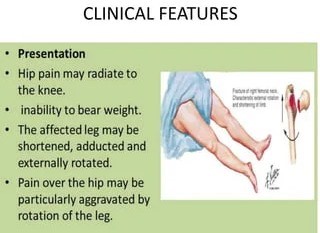Why it is important to immobilize a suspected fracture. The nurse explains that immobilizing a fracture will... (SELECT ALL THAT APPLY)
Prevent blood clots
Prevent malignant hyperthermia.
Promote fracture healing.
Reduce pain
Prevent fat embolism
Correct Answer : C,D,E
The nurse explains that immobilizing a fracture will:
- Help align the bone fragments and reduce movement, which is crucial for proper healing. Immobilization can help maintain the stability of the fracture site, allowing the bones to knit together and heal.
- Help to minimize movement and subsequent pain. It provides support and reduces stress on the injured area, which can help alleviate discomfort and promote a more comfortable healing process.
- Help to minimize movement and reduce the risk of fat globules from bone marrow entering the bloodstream and causing a fat embolism, a potentially serious complication.
Preventing blood clots, preventing malignant hyperthermia, and immobilizing a fracture are not directly related. Preventing blood clots typically involves other measures such as early mobilization, elevation, and medication to prevent deep vein thrombosis. Malignant hyperthermia is a rare, potentially life-threatening reaction to certain medications used during anesthesia, and immobilization does not directly prevent it.
Nursing Test Bank
Naxlex Comprehensive Predictor Exams
Related Questions
Correct Answer is D
Explanation
This finding suggests that the client may have experienced a hip fracture. The shorter leg can be a result of the fractured bone, causing a misalignment or displacement. The protruding bump on the side can be a sign of a dislocated or fractured hip joint. It is important to assess and confirm this suspicion through appropriate diagnostic measures, such as X-rays, to provide the necessary medical intervention and management.

Correct Answer is C
Explanation
Taking an extra dose of Aspirin prior to surgery can significantly increase the risk of bleeding during and after the surgical procedure. Aspirin is a non-steroidal anti-inflammatory drug (NSAID) that can interfere with the normal blood clotting process. Surgical procedures often require meticulous control of bleeding, and the presence of Aspirin in the patient's system can pose a significant risk.
It is essential for patients to follow preoperative instructions provided by the healthcare team, including avoiding certain medications or substances that can increase the risk of complications during surgery. Taking an extra dose of Aspirin, especially without consulting the healthcare provider, can jeopardize the safety of the surgical procedure and may require rescheduling to ensure the patient's well-being.
Whether you are a student looking to ace your exams or a practicing nurse seeking to enhance your expertise , our nursing education contents will empower you with the confidence and competence to make a difference in the lives of patients and become a respected leader in the healthcare field.
Visit Naxlex, invest in your future and unlock endless possibilities with our unparalleled nursing education contents today
Report Wrong Answer on the Current Question
Do you disagree with the answer? If yes, what is your expected answer? Explain.
Kindly be descriptive with the issue you are facing.
